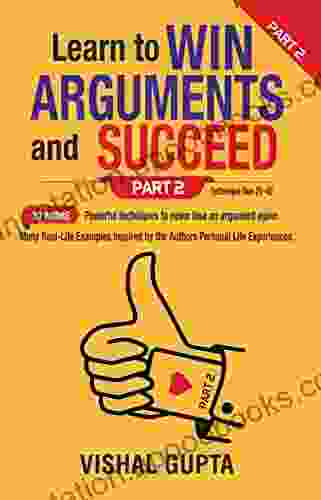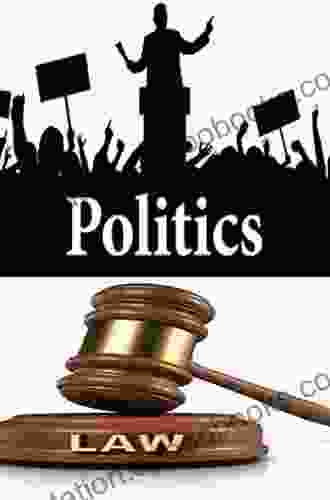An Examination of the Relationship Between Law and Politics

The interplay between law and politics is a dynamic and ever-evolving relationship that has shaped societies throughout history. This article aims to provide a comprehensive examination of this relationship, exploring its historical, philosophical, and practical dimensions. Through an in-depth analysis, we will uncover the ways in which law and politics influence each other, shaping the legal framework, political decision-making, and the overall functioning of society.
4 out of 5
| Language | : | English |
| File size | : | 977 KB |
| Text-to-Speech | : | Enabled |
| Screen Reader | : | Supported |
| Enhanced typesetting | : | Enabled |
| Word Wise | : | Enabled |
| Print length | : | 255 pages |
Historical Context
The relationship between law and politics has been a subject of debate and study since ancient times. In early civilizations, law was often intertwined with religious beliefs and political authority. The Code of Hammurabi, one of the earliest known written legal codes, was believed to have been divinely inspired and served to reinforce the power of the Babylonian king.
As societies evolved, the concept of law became more distinct from religion and politics. The Greek philosopher Aristotle argued that law should be based on reason and justice, rather than the arbitrary will of rulers. This idea laid the foundation for the separation of powers doctrine, which later became a cornerstone of modern democratic systems.
Philosophical Underpinnings
The philosophical underpinnings of the relationship between law and politics have been explored by numerous thinkers throughout history. Thomas Hobbes believed that law was necessary to create Free Download and prevent chaos in society. He argued that individuals should surrender some of their freedom to a sovereign authority in exchange for protection and security.
In contrast, John Locke argued that the purpose of law was to protect individual rights and liberties. He believed that government should be limited in its power and that citizens should have the right to resist tyranny. These philosophical debates continue to shape contemporary discussions about the role and scope of law in society.
Constitutionalism
Constitutionalism is a system of government in which the exercise of political power is limited by a written constitution. A constitution establishes the fundamental principles of a nation, including the rights and freedoms of citizens, the distribution of power among different branches of government, and the rule of law.
Constitutionalism is essential for maintaining the balance between law and politics. It ensures that political decisions are made within a legal framework and that individual rights are protected from arbitrary government action.
Separation of Powers
The separation of powers is a constitutional principle that divides the powers of government among different branches, such as the executive, legislative, and judicial branches. This division of power is designed to prevent any one branch from becoming too powerful and to ensure that laws are made and enforced fairly.
The separation of powers is a crucial aspect of the relationship between law and politics. It ensures that the political process is balanced and that the rule of law is upheld.
Judicial Review
Judicial review is the power of courts to declare laws or government actions unconstitutional. This power serves as a check on the political branches of government and helps to ensure that laws are consistent with the constitution.
Judicial review is an essential component of the relationship between law and politics. It provides a means for resolving disputes over the legality of government actions and for protecting individual rights.
Rule of Law
The rule of law is a principle that states that all individuals, including government officials, are subject to the law. It requires that laws be clear, predictable, and applied fairly to all.
The rule of law is essential for maintaining a just and Free Downloadly society. It prevents the arbitrary exercise of power and ensures that individuals can rely on the law to protect their rights.
Political Legitimacy
Political legitimacy refers to the belief that a government has the right to exercise power. Legitimacy can be based on various factors, such as popular consent, tradition, or the effectiveness of government in meeting the needs of its citizens.
The relationship between law and politics is closely intertwined with political legitimacy. Laws that are perceived as fair and legitimate are more likely to be obeyed and respected. Conversely, laws that are seen as unjust or arbitrary can undermine the legitimacy of the government.
The relationship between law and politics is a complex and multifaceted one that has profound implications for the functioning of society. Through an examination of its historical, philosophical, and practical dimensions, we have gained a deeper understanding of the ways in which law and politics influence each other, shape the legal framework, and impact political decision-making.
In modern democratic societies, the rule of law, constitutionalism, separation of powers, and judicial review are essential mechanisms for maintaining the balance between law and politics. These principles ensure that political decisions are made within a legal framework, that individual rights are protected, and that the government is accountable to the people.
As the world continues to evolve, the relationship between law and politics will undoubtedly continue to be a subject of debate and discussion. However, by understanding the principles that govern this relationship, we can foster a more just and equitable society for all.
4 out of 5
| Language | : | English |
| File size | : | 977 KB |
| Text-to-Speech | : | Enabled |
| Screen Reader | : | Supported |
| Enhanced typesetting | : | Enabled |
| Word Wise | : | Enabled |
| Print length | : | 255 pages |
Do you want to contribute by writing guest posts on this blog?
Please contact us and send us a resume of previous articles that you have written.
 Book
Book Novel
Novel Page
Page Chapter
Chapter Text
Text Story
Story Genre
Genre Reader
Reader Library
Library Paperback
Paperback E-book
E-book Magazine
Magazine Newspaper
Newspaper Paragraph
Paragraph Sentence
Sentence Bookmark
Bookmark Shelf
Shelf Glossary
Glossary Bibliography
Bibliography Foreword
Foreword Preface
Preface Synopsis
Synopsis Annotation
Annotation Footnote
Footnote Manuscript
Manuscript Scroll
Scroll Codex
Codex Tome
Tome Bestseller
Bestseller Classics
Classics Library card
Library card Narrative
Narrative Biography
Biography Autobiography
Autobiography Memoir
Memoir Reference
Reference Encyclopedia
Encyclopedia Clarence Hawkes
Clarence Hawkes Irwin Chusid
Irwin Chusid Vesa Turpeinen
Vesa Turpeinen Demelza Carlton
Demelza Carlton Jesse Stone
Jesse Stone Chasity Bowlin
Chasity Bowlin Haleh Liza Gafori
Haleh Liza Gafori Chris C Mcnulty
Chris C Mcnulty Christine Sterling
Christine Sterling Monika Herzig
Monika Herzig Eric Peatman
Eric Peatman Danna G Hallmark
Danna G Hallmark Chuck Klein
Chuck Klein Rick Payne
Rick Payne Christopher H Owen
Christopher H Owen Chris Kanthan
Chris Kanthan Christopher Blattman
Christopher Blattman Clarice Brough
Clarice Brough Rudolf Mauz
Rudolf Mauz David J Eck
David J Eck
Light bulbAdvertise smarter! Our strategic ad space ensures maximum exposure. Reserve your spot today!

 Shannon SimmonsGonioscopy: A Comprehensive Guide to the Diagnostics and Treatment of Angle...
Shannon SimmonsGonioscopy: A Comprehensive Guide to the Diagnostics and Treatment of Angle...
 Branson CarterUnveiling the Enchanting Realm of the Halflings: A Comprehensive Review of...
Branson CarterUnveiling the Enchanting Realm of the Halflings: A Comprehensive Review of... Douglas AdamsFollow ·2.7k
Douglas AdamsFollow ·2.7k Darren NelsonFollow ·6.7k
Darren NelsonFollow ·6.7k Fredrick CoxFollow ·16k
Fredrick CoxFollow ·16k Italo CalvinoFollow ·19.7k
Italo CalvinoFollow ·19.7k Herb SimmonsFollow ·5.7k
Herb SimmonsFollow ·5.7k J.D. SalingerFollow ·11.3k
J.D. SalingerFollow ·11.3k Cade SimmonsFollow ·13.8k
Cade SimmonsFollow ·13.8k Robert ReedFollow ·18.8k
Robert ReedFollow ·18.8k

 Kevin Turner
Kevin TurnerDive into the Enchanting World of "Crazy Like Fox": A...
Prepare yourself for a literary adventure...

 Ralph Waldo Emerson
Ralph Waldo EmersonUnlock the Elegance of Daffodil Lace: An Immersive Guide...
: A Tapestry of Delicate...

 Gerald Parker
Gerald ParkerNever Lose An Argument Again: 20 Powerful Techniques From...
Are you tired of losing...

 Xavier Bell
Xavier BellSeven Animal Insertions Filet Crochet Pattern: Embark on...
Welcome to the captivating...

 Eugene Powell
Eugene PowellMagomago in TDS Magomago 12: An Unforgettable Adventure...
Step into the Enchanting World of...

 Marvin Hayes
Marvin HayesSoft Felting Needle Holder Excellence In Reborn Artistry
Unveiling the Secrets of the...
4 out of 5
| Language | : | English |
| File size | : | 977 KB |
| Text-to-Speech | : | Enabled |
| Screen Reader | : | Supported |
| Enhanced typesetting | : | Enabled |
| Word Wise | : | Enabled |
| Print length | : | 255 pages |








